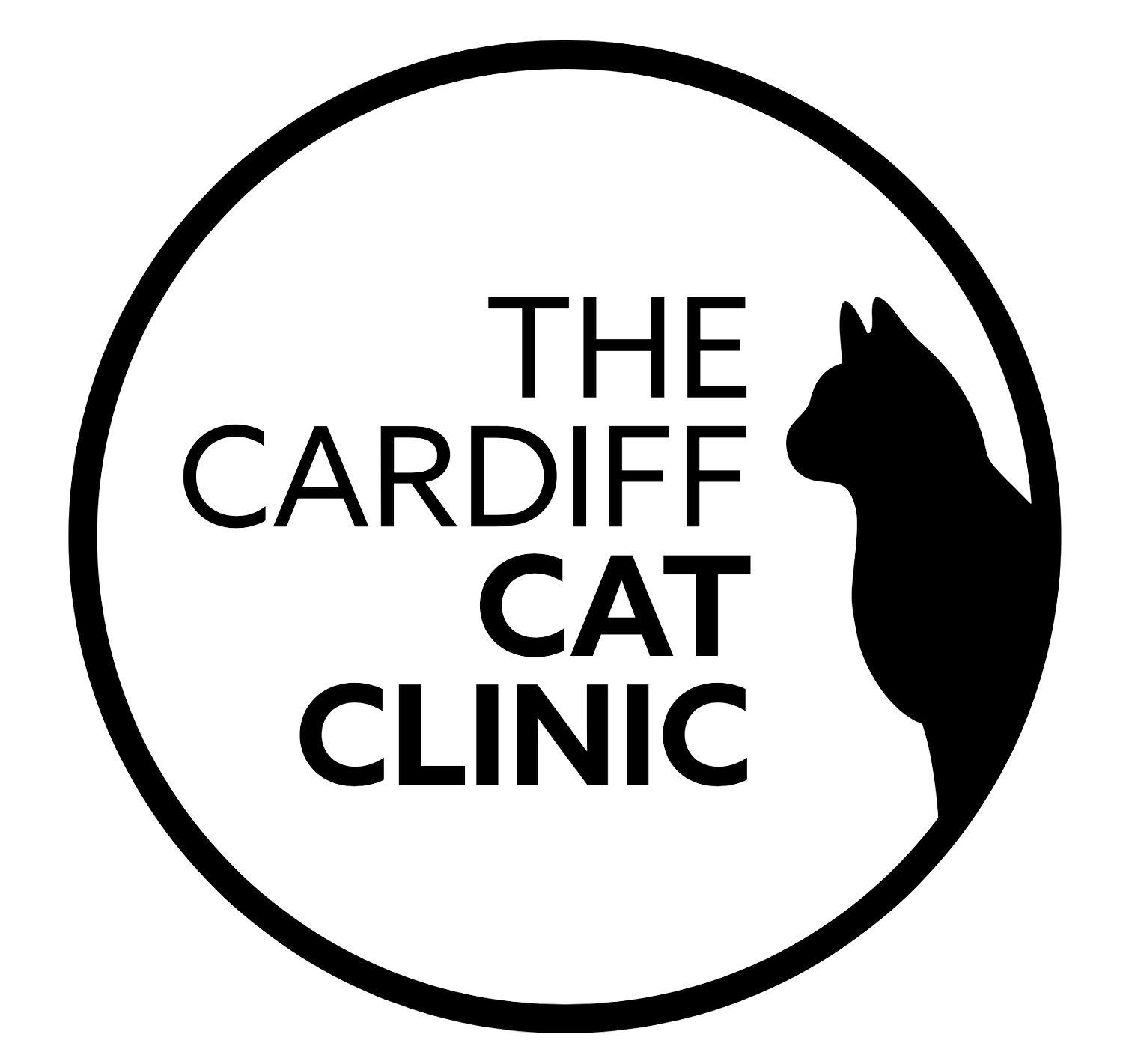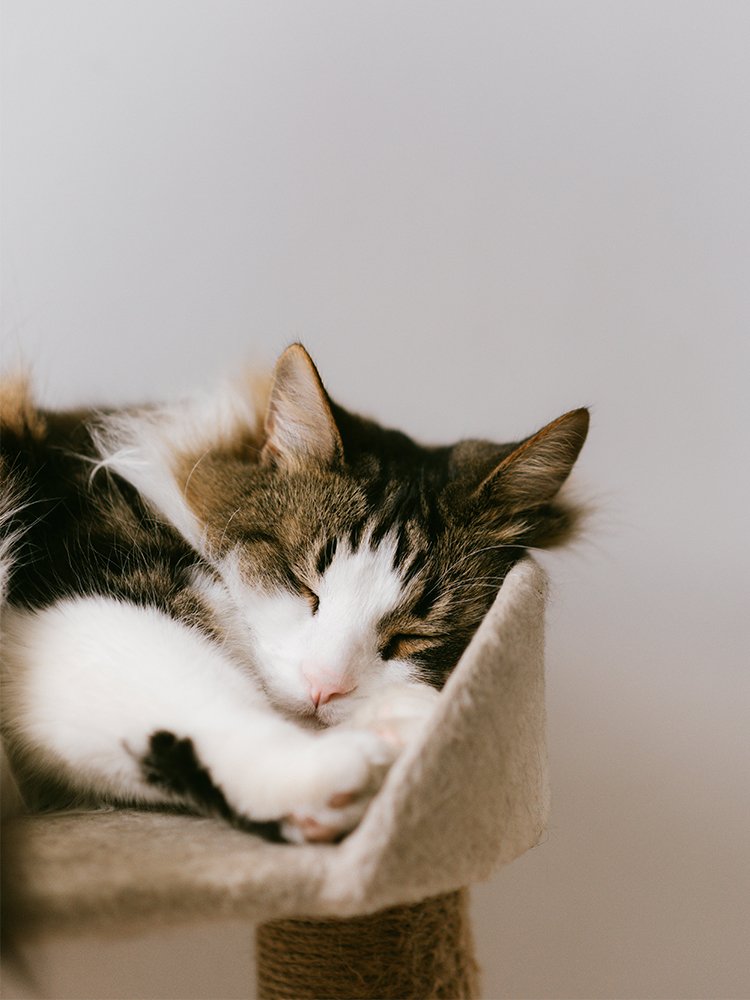Information for clients
The treatment involves a single injection of radioactive iodine, given under the skin at the back of the neck, usually while the cat is under light sedation. The iodine is then taken up by the thyroid glands and its radioactivity destroys the overactive thyroid cells. This is completely painless and the cat is unaware that it is happening. There is no hair loss or any of the other side effects that are associated with radiotherapy for other forms of cancer.
Once your cat has received the radioactive iodine injection we need to keep them hospitalised in a specially equipped and licensed isolation unit. This is a legal requirement until your cat’s radioactivity emission is below a safe level. We measure the level regularly to make sure your cat is released as soon as possible.
We recommend discontinuing anti-thyroid medication 7-10 days prior to treatment and to stop feeding Y/D for 2 weeks prior to treatment.
The Environment
Great care has gone into the design of our units to enrich the environment:
A cat-only environment ensuring a stress-free stay
Purpose-built, spacious unit with large cabins.
A virtual aquarium for visual stimulation.
24-hour surveillance camera to allow safe monitoring.
Feline pheromones perfusing the air.
Large windows with natural light and views of the outside.
Glass-fronted, floor to ceiling cabins
What happens during the stay
Cats will clear the radioactivity from their system at different rates depending on their metabolism. Providing the patient’s emission are below a certain safe level, we are able to release them from as early as twelve to fourteen days after the injection of I131. However, some cats may be required to stay in the unit longer. We monitor the level closely to allow our feline patients to be reunited with their owners as soon as possible.
It is not possible for owners to enter the unit for health and safety reasons. All staff entering the unit have to be trained and monitored for radiation exposure. Patients will be cared for and monitored by the two Clinic vets and clients will be updated . If there is any health issue or treatment necessary while your cat is kept in the unit, one of our veterinary surgeons will get in touch with you.
We check the cats regularly once they enter the unit but because we will not be able to take blood, urine or perform tests such as X-rays during the stay, we ask for a range of tests to be done prior to admission.
Alternatively, we can carry out the tests on the day of admission. This is to make sure your cat is healthy enough to undergo the treatment.
Cats entering the environment must be vaccinated, micro-chipped, treated for fleas and wormed to reduce any risk of transmission. Due to the risk of contamination any items brought in with the cat will not be returned following hospitalisation.
After radioiodine injection no further treatment is necessary in 95% of cases. We will ask you to organise a check up with your vet a month after we have released your cat from the unit. A small proportion of cats with severe disease and very high levels of circulating thyroid hormones are still hyperthyroid 6 months after treatment and require a second treatment. An even smaller proportion of cats are unsuitable for treatment because they suffer from a malignant tumour of the thyroid gland which requires much higher doses of radioactive iodine. These cases are typically identified during the initial assessment or during treatment.
After your vet has referred you to us, one of our vets will telephone you to discuss the whole process before booking the appointment. The cost of treatment is £3,000.00 inc VAT. This includes:
Assessment of your cat’s suitability.
Admission appointment
Blood tests, blood pressure measurement and urinalysis.
Echocardiography.
Sedation and injection of radioiodine.
Hospitalisation in the unit for up to 14 days.
Supply of flushable cat litter to be used at home.
Any additional investigation or treatment required during your cat’s stay at the Clinic may incur extra costs.
A daily fee of £25 will be charged for hospitalisation over 14 days.
Fewer than 1% of patients require a second injection. Should that be the case an additional treatment course is free of charge.
Fees are payable in 2 parts – a non-returnable deposit of £500 on confirmation of the appointment and the balance payable on discharge. The Clinic is happy to accept direct payment from insurance companies provided pre-authorisation of cover is confirmed following which the deposit will be refunded.
What happens after treatment
Before discharge, radiation levels will be checked and we will arrange collection with you. Cats should be transported home in a suitable carrier and not taken on public transport. The risks associated with this radiation level are small – about the same as you would receive on a long haul flight – provided that sensible precautions are taken. At home during the first 14 days the following precautions should be taken:
Cats should be confined indoors, without access to occupied bedrooms.
Disposable gloves should be worn when emptying the litter tray
Owners must restrict close contact to less than 10 minutes for 4 weeks after returning home.
Owners should ensure that any children in the household will remain at a safe distance from the cat and its litter box.
No-one in the house who is pregnant, or trying to become pregnant should come into contact with the cat.
There is a secure outside storage area (garage, shed) where double bagged soiled litter can be stored for one month before being put out for collection. If this is not possible, special litter can be purchased that can be flushed down the toilet.



